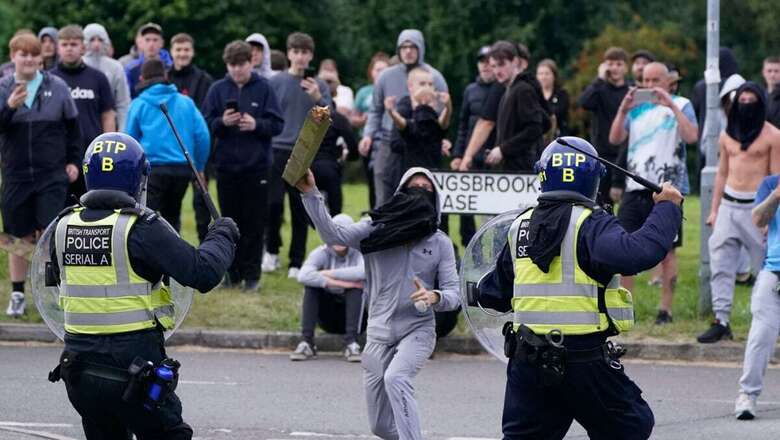
views
The UK government has ordered a so-called “rapid analytical sprint” to map and monitor extremism trends as part of a review to clamp down on radicalisation, hateful beliefs and violence against women and girls.
Home Secretary Yvette Cooper told ‘The Sunday Telegraph’ that she has ordered the review into the government’s counter-extremism strategy amid fears that extremist ideologies online and on the streets of the country have been on the rise.
It comes in the wake of a series of violent clashes involving far-right extremists across Britain following the fatal stabbing of three young girls in Southport, north-west England.
“Action against extremism has been badly hollowed out in recent years, just when it should have been needed most,” Cooper is quoted by the newspaper as saying.
“That’s why I have directed the Home Office to conduct a rapid analytical sprint on extremism, to map and monitor extremist trends, to understand the evidence about what works to disrupt and divert people away from extremist views, and to identify any gaps in existing policy which need to be addressed to crack down on those pushing harmful and hateful beliefs and violence. That work will underpin a new strategic approach to countering extremism from government, working closely with communities to build consensus and impetus for our plans,” she said.
The review is said to be looking at the rise of both Islamist and far-right extremism in the UK, as well as wider ideological trends, including extreme misogyny or beliefs that fit into broader categories like fixation on violence. Officials will examine emerging ideologies which are gaining momentum and will assess any gaps in the current system which leave the country “exposed” to threats that promote violence or undermine democracy.
“For too long, governments have failed to address the rise in extremism, both online and on our streets, and we’ve seen the number of young people radicalised online grow. Hateful incitement of all kinds fractures and frays the very fabric of our communities and our democracy,” added Cooper.
Over 450 people have appeared in courts charged with the rioting and violent disorder sparked by misinformation surrounding the 17-year-old UK-born male suspect in the Southport knife attack, with a large number of them under the age of 18.
While in Opposition, Cooper had criticised the Conservative Party government for having no counter-extremism strategy since 2015 and said that the lack of a comprehensive approach or practical plans was leaving communities less safe.
The review could mean teachers will be legally required to refer pupils they suspect of being radicalised to Prevent, the government’s counter-terror programme, amid concerns that online influencers could radicalise teenage boys in extreme misogyny. Under the Prevent measures, anyone who is referred is then assessed by their local authority and the police to see if they need to be deradicalised.




















Comments
0 comment